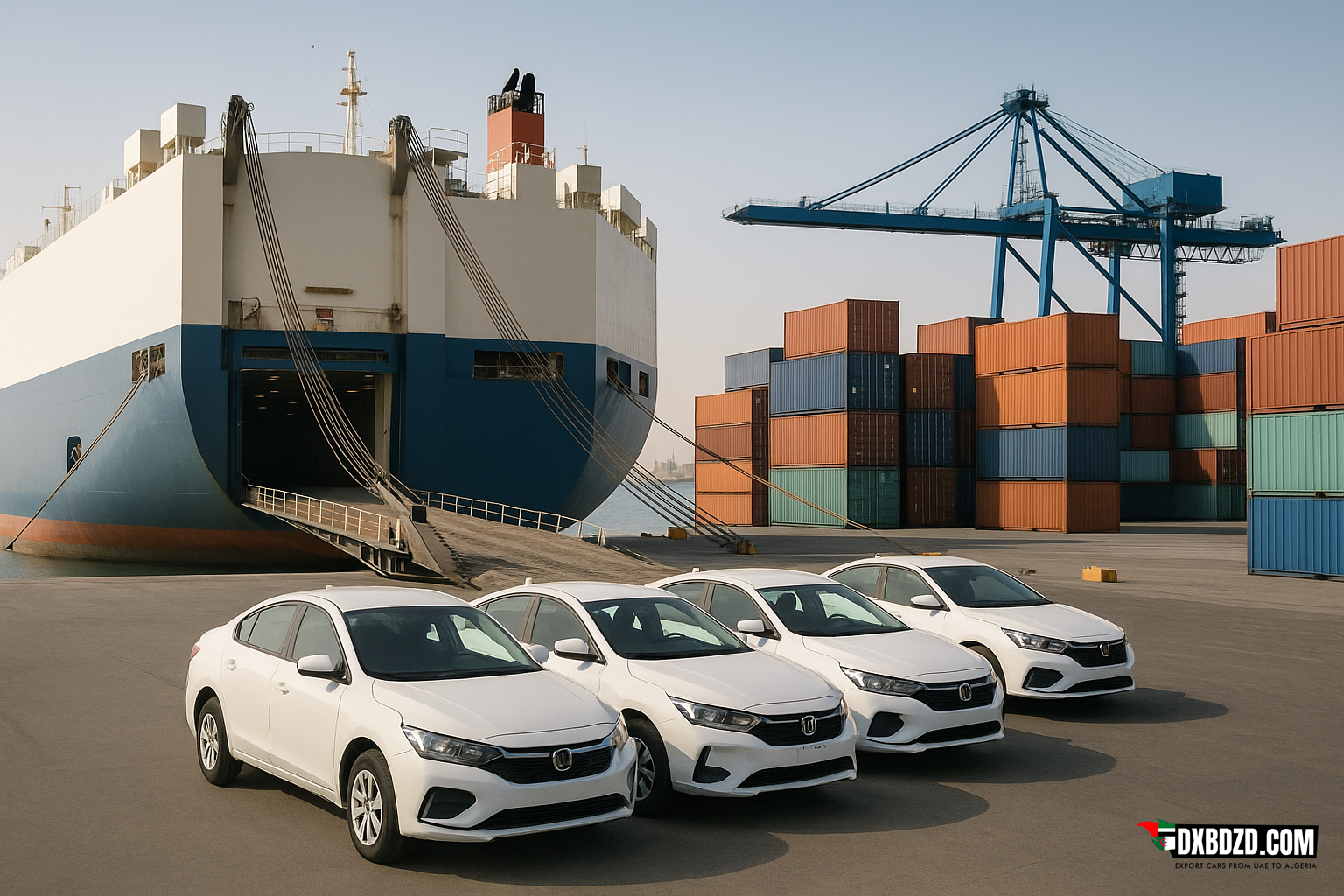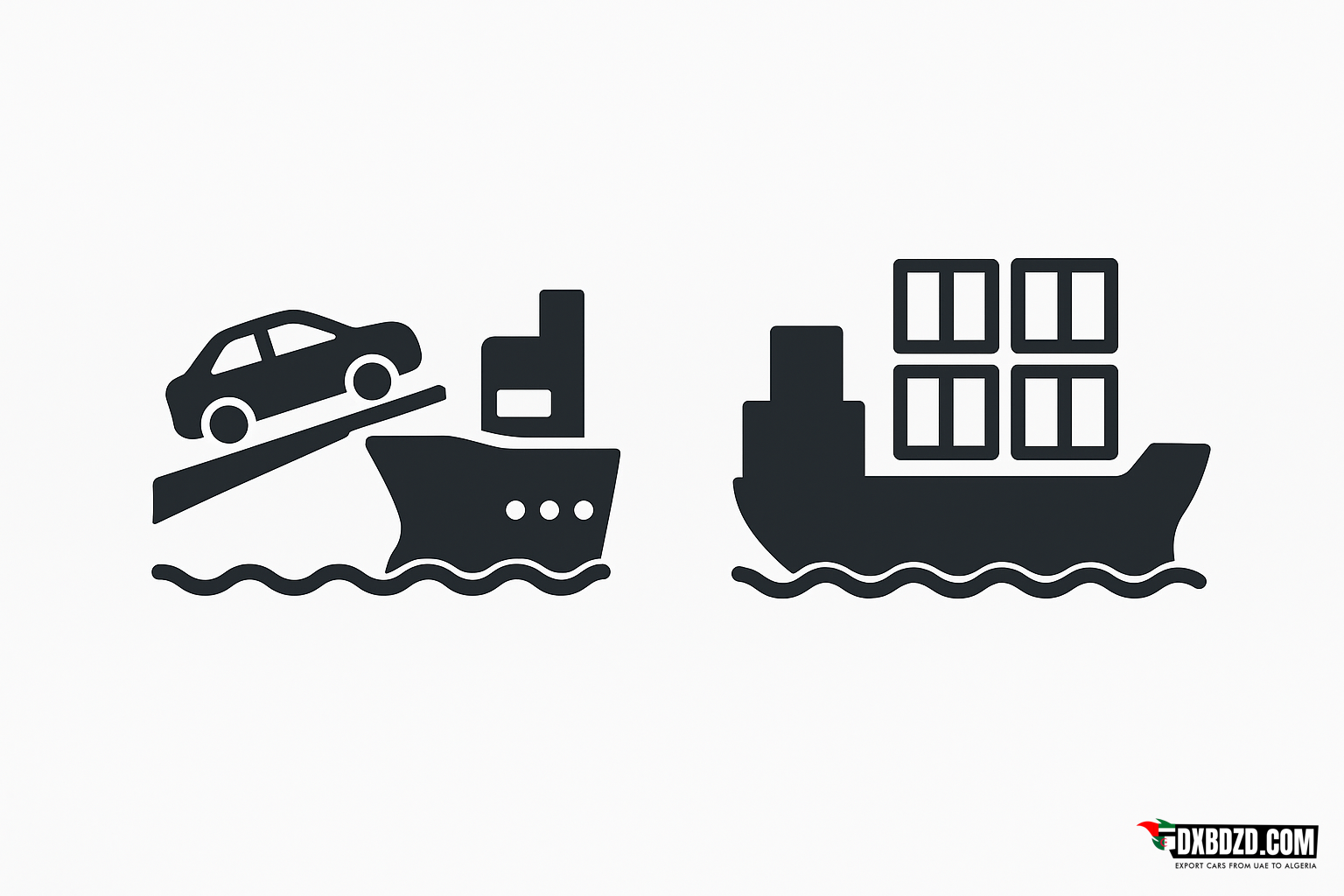
Avoid 7 Common Mistakes When Importing a Car from the UAE
September 10, 2025
META: Avoid costly errors when importing a car from the UAE to Algeria. Understand the process, costs, timeline, and crucial documents involved.
# TL;DR
Importing a car from the UAE to Algeria is a process that requires careful planning and adherence to specific steps. To avoid common pitfalls, you need to understand the costs involved, the timeline, necessary documents, and the pros and cons of different shipping methods.
# Costs
Costs are a significant factor when importing a car from the UAE. These are the main components:
- **Purchase Price**: This is the cost of the vehicle in the UAE.
- **Shipping Costs**: These can vary depending on the method chosen (RoRo or Container).
- **Insurance**: This is necessary to cover potential damage during transit.
- **Inspection Costs**: Pre-shipment inspection is mandatory.
- **Import Duties**: Duties are usually high in Algeria and depend on the car's age and engine capacity.
Remember, these are just the primary cost drivers. Additional costs may arise, such as port handling fees, storage charges, and local transportation.
# Timeline
The timeline depends on various factors like shipping method and customs clearance. Typically, the entire process, from purchasing the car in the UAE to receiving it in Algeria, can take anywhere between 4 to 8 weeks.
# Documents Checklist
Ensure you have the following documents:
- Original vehicle title
- Bill of sale
- Bill of Lading
- International insurance policy
- Export declaration from UAE customs
- Pre-shipment inspection certificate
# Step-by-Step Guide
1. **Purchase the Vehicle**: Buy the car from a reputable dealer in the UAE.
2. **Arrange Shipping**: Choose between RoRo or Container shipping.
3. **Get the Car Insured**: Purchase an international insurance policy.
4. **Perform Pre-Shipment Inspection**: This is mandatory and ensures the car meets Algerian standards.
5. **Prepare Documents**: Gather all necessary documents listed above.
6. **Customs Clearance**: Upon arrival in Algeria, the vehicle must go through customs clearance.
# Pros and Cons (RoRo vs Container)
- **RoRo**
- Pros: Cheaper, quicker loading/unloading times.
- Cons: Less protection, not suitable for high-value cars.
- **Container**
- Pros: High level of protection, suitable for expensive cars.
- Cons: More expensive, longer loading/unloading times.
# Common Mistakes
Avoid these common mistakes when importing a car from the UAE:
- Not performing a pre-shipment inspection
- Choosing the wrong shipping method
- Not insuring the car for international shipping
- Failing to account for all costs
- Not preparing necessary documents in advance
# FAQ
1. **What is the age limit for importing cars to Algeria?**
2. **Can I import left-hand drive vehicles?**
3. **How can I reduce import duties?**
4. **What happens if I don't perform a pre-shipment inspection?**
5. **What's the difference between RoRo and Container shipping?**
Remember, knowledge is power. The more informed you are about the process, the smoother your car importation journey will be.


# TL;DR
Importing a car from the UAE to Algeria is a process that requires careful planning and adherence to specific steps. To avoid common pitfalls, you need to understand the costs involved, the timeline, necessary documents, and the pros and cons of different shipping methods.
# Costs
Costs are a significant factor when importing a car from the UAE. These are the main components:
- **Purchase Price**: This is the cost of the vehicle in the UAE.
- **Shipping Costs**: These can vary depending on the method chosen (RoRo or Container).
- **Insurance**: This is necessary to cover potential damage during transit.
- **Inspection Costs**: Pre-shipment inspection is mandatory.
- **Import Duties**: Duties are usually high in Algeria and depend on the car's age and engine capacity.
Remember, these are just the primary cost drivers. Additional costs may arise, such as port handling fees, storage charges, and local transportation.
# Timeline
The timeline depends on various factors like shipping method and customs clearance. Typically, the entire process, from purchasing the car in the UAE to receiving it in Algeria, can take anywhere between 4 to 8 weeks.
# Documents Checklist
Ensure you have the following documents:
- Original vehicle title
- Bill of sale
- Bill of Lading
- International insurance policy
- Export declaration from UAE customs
- Pre-shipment inspection certificate
# Step-by-Step Guide
1. **Purchase the Vehicle**: Buy the car from a reputable dealer in the UAE.
2. **Arrange Shipping**: Choose between RoRo or Container shipping.
3. **Get the Car Insured**: Purchase an international insurance policy.
4. **Perform Pre-Shipment Inspection**: This is mandatory and ensures the car meets Algerian standards.
5. **Prepare Documents**: Gather all necessary documents listed above.
6. **Customs Clearance**: Upon arrival in Algeria, the vehicle must go through customs clearance.
# Pros and Cons (RoRo vs Container)
- **RoRo**
- Pros: Cheaper, quicker loading/unloading times.
- Cons: Less protection, not suitable for high-value cars.
- **Container**
- Pros: High level of protection, suitable for expensive cars.
- Cons: More expensive, longer loading/unloading times.
# Common Mistakes
Avoid these common mistakes when importing a car from the UAE:
- Not performing a pre-shipment inspection
- Choosing the wrong shipping method
- Not insuring the car for international shipping
- Failing to account for all costs
- Not preparing necessary documents in advance
# FAQ
1. **What is the age limit for importing cars to Algeria?**
2. **Can I import left-hand drive vehicles?**
3. **How can I reduce import duties?**
4. **What happens if I don't perform a pre-shipment inspection?**
5. **What's the difference between RoRo and Container shipping?**
Remember, knowledge is power. The more informed you are about the process, the smoother your car importation journey will be.

